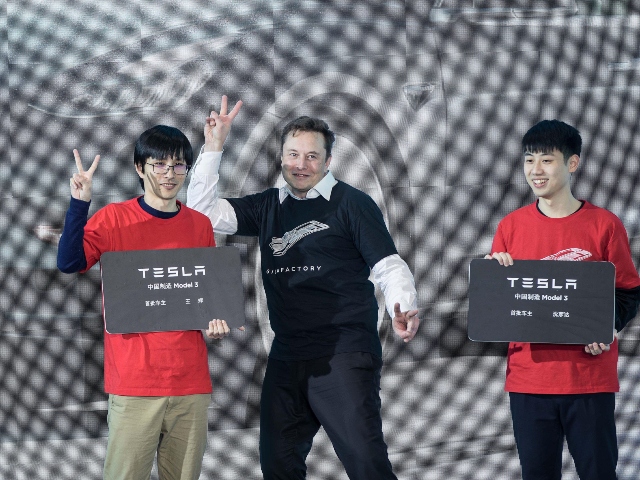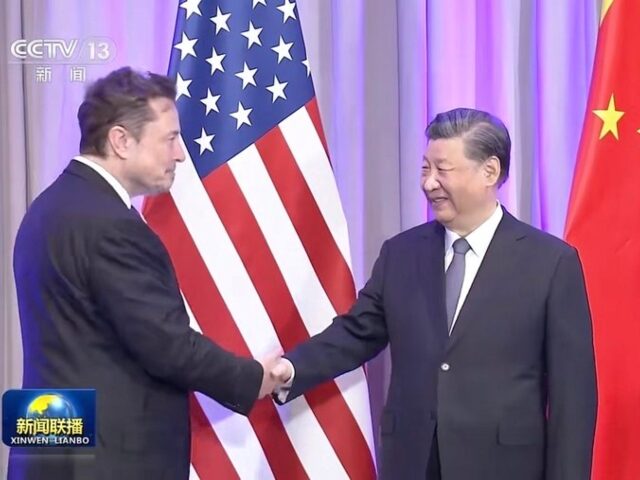China, the world’s largest electric vehicle (EV) market, is expected to see a slower growth rate in electric cars sales this year, spelling trouble for major players like Tesla and local competitor BYD. More than half of Tesla’s sales come from the communist country, adding more problems to the company which is the worst performing stock in the S&P 500 this year.
Business Insider reports that according to the China Passenger Car Association, sales of new-energy vehicles in China are projected to rise by 25 percent to 11 million units in 2024. While this may seem like a healthy increase, it is significantly lower than the 36 percent growth rate observed last year. This slowdown in demand is raising concerns for EV manufacturers, particularly Tesla and BYD, which have been battling for dominance in the Chinese market.

SHANGHAI, Jan. 7, 2020 — Tesla CEO Elon Musk poses with Tesla China-made Model 3 vehicle owners during a ceremony in Shanghai, east China, Jan. 7, 2020. (Photo by Ding Ting/Xinhua via Getty)
Tesla, led by Elon Musk, has been struggling to keep up with its Chinese rivals’ aggressive price cuts. In 2023, the company slashed prices for its Model 3, S, X, and Y in China to compete with local brands like BYD, which offers much cheaper vehicles such as the $11,000 Seagull. Despite these efforts, Tesla lost its title as the world’s top EV seller for 2023 to BYD. The price war between Tesla, BYD, and other local companies has gotten so bad that Musk signed a pledge to uphold “core socialist values” in the communist country by not engaging in further price slashing.
Seth Goldstein, an equities strategist for Morningstar, believes that a significant portion of Tesla’s first-quarter delivery miss can be attributed to the intense price competition in China. He stated, “There’s a lot of price competition, and we’re seeing consumers go to other brands with cheaper offerings.” Tesla’s decision to hold prices steady this year appears to have backfired, as the company missed Wall Street forecasts for deliveries, and its market share in China has fallen from 11 percent in early 2023 to around seven percent.
The slowdown in China’s EV market can be attributed to several factors, including the constant price cuts by local companies, which have irritated some potential buyers. Additionally, China’s economy has struggled since the end of the pandemic, with deflationary pressures and an ongoing property-market crisis dampening consumer spending.
Read more at Business Insider here.
Lucas Nolan is a reporter for Breitbart News covering issues of free speech and online censorship.

COMMENTS
Please let us know if you're having issues with commenting.